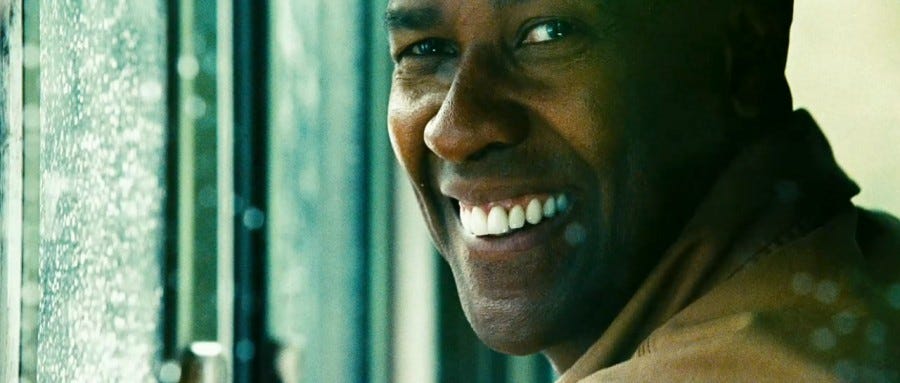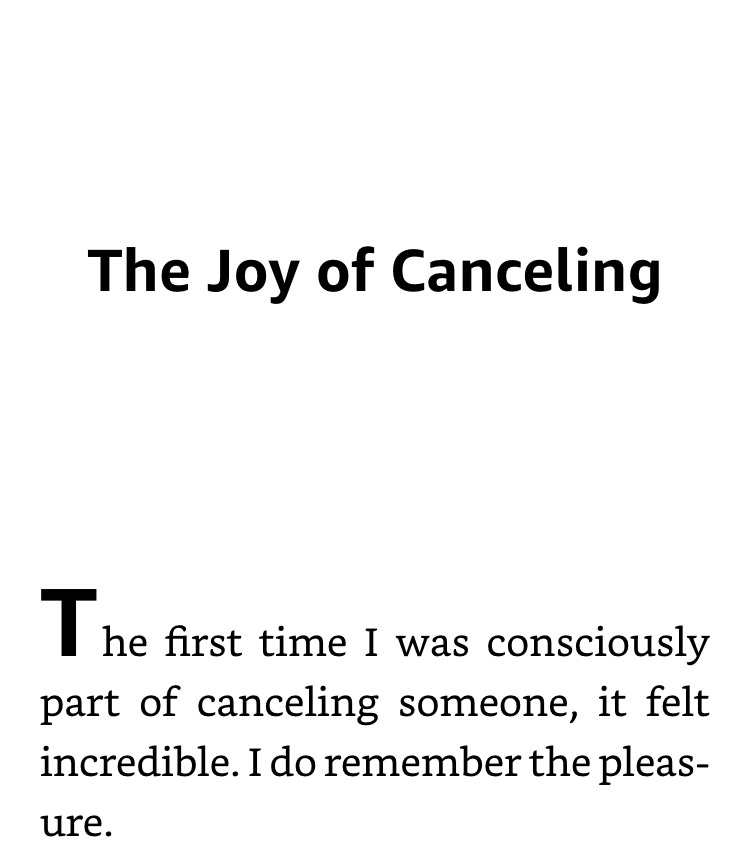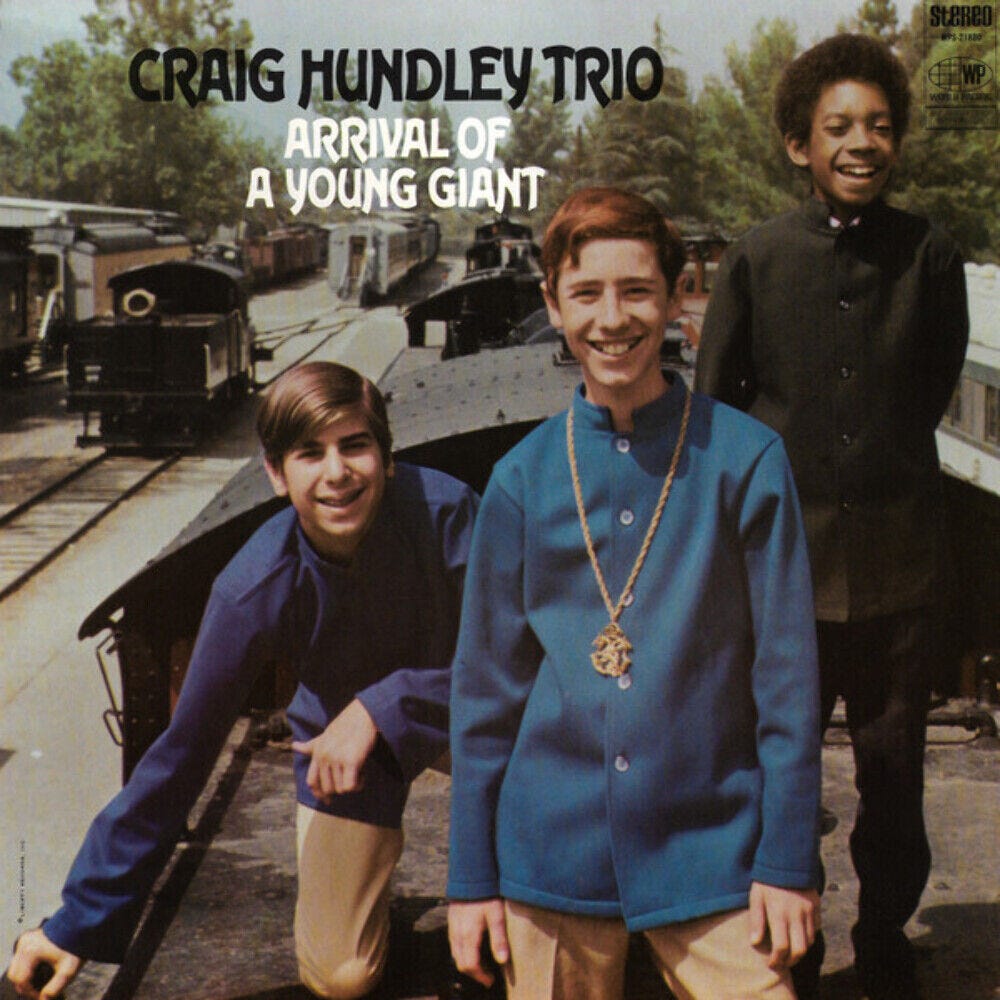TT 405: ALLIGATOR, UNSTOPPABLE, and MORNING AFTER THE REVOLUTION
Two old movies and a new book -- What class do YOU want to be in?
While not a Roger Corman production, Alligator (1980) is in the Corman tradition of inexpensive and reasonably exploitative horror B-movies. Indeed, some of the recent Corman obits mention Alligator in passing, as both director Lewis Teague and writer John Sayles had significant relationships with Corman in the 1970s.
This was my second watch. The first occasion was after Robert Forster passed in 2019. Forster was not a lead in many movies, so Alligator turned up front and center in Forster obits. I always liked Forster and it turned out that Alligator is — in its way — a rarefied experience.
Sure, you can say “the whole movie is a cliché” and you’d be right. Indeed, the clichés land with bewildering obviousness. A baby alligator is flushed down a toilet, where it drinks polluted run-off from an evil pharmaceutical company, thus magically becoming gigantic. When the lab “genius” at that company complains of a nosy cop, his slimy boss counters that the real problem are the journalists, adding, “Don’t worry about it, I’ll put in the fix.”
“I’ll put in the fix.” Good god. I can just see John Sayles at his writing desk, screaming with laughter while half-conceiving, half-remembering one overly-familiar line of dialogue after another. The final effect is “so bad it’s good.”
One shouldn’t go into this film expecting much more than, “It’s so bad it’s good.” Yet Sayles also somehow delivers something in the larger frame, with subtly shocking examples of animal exploitation and a telling sequence where buskers are selling every kind of toy alligator to spectators gawking at violent aftermath.
Director Lewis Teague has a tiny budget and a plot that can be summed up in block print on the back of matchbook. He does what he can. One might have expected Teague to apportion most of that small budget for the lurking menace in the sewer, but we barely see the creature. (We certainly don’t see it swim around in post-CGI fashion: Mostly we see a closeup of a lizard’s eye opening accompanied by tense music.) Instead, Teague serves up a well-cast crew of character actors chewing the scenery and several vivid sequences of automobile destruction. When the monster finally appears in all its “glory,” destroying the pharmaceutical creators in the final act, it is very satisfying.
Robert Forster ends up holding the whole thing together, offering a flawless assemblage of every “lone cop on mission” trope imaginable: driven, haunted, tough, persecuted, heroic, sexy, smart, strong, vulnerable. He’s a working man, wearing a shirt pocked with holes. Forster is also the butt of a recurring joke about male-pattern baldness.
I really like this movie.
There are blue-collars in my extended family, and recently I suggested a post-dinner viewing of Unstoppable (2010), starring Denzel Washington and Chris Pine, directed by Tony Scott from a script by Mark Bomback. It went over big with my intended audience.
There are not so many recent Hollywood action movies that have a basic “disaster” plot with no superheroes or daredevil spies. Unstoppable is loosely based on a true story, where an unmanned freight train is accidentally left under power and begins charging down the track. Humble railroad employees Denzel Washington and Chris Pine are at the ends of the spectrum: one is experienced, one is a novice. They start off opposed to each other, but end up working well as a team. And, yes, they stop the train.
Every beat is predictable, yet it all moves forward with heart and style. This was actually my third viewing of Unstoppable, but once again I found the action simply riveting.
Tony Scott knows what he’s doing. His masterpiece The Enemy of the State (1998) featured the integration of state-of-the-art tech into the narrative. The world of the Unstoppable train yard is comparatively “non-tech,” but Scott manifests the same style of exciting roving graphics used in The Enemy of the State by cutting frequently to FOX news bulletins. (The reporters very nearly create another disaster; Pine and Washington have trouble communicating outside on walkie-talkies thanks to the noise of the ever-present FOX helicopter.)
Among other nice touches, the heads of the railroad are portrayed as money-grubbing incompetents. It’s not a reach to compare something in the basic dominance hierarchy of Alligator and Unstoppable: The corporations destroy while the workers have to try to fix the mess. (Kevin Dunn’s fine performance as the vice-president of AWVR train-operations Oscar Galvin pairs neatly with his similar flawed “voice of authority” role as the boss of Woody Harrelson and Matthew McConaughey in True Detective.)
And, if we love Robert Forster in Alligator, we love Denzel Washington in Unstoppable. Perhaps Chris Pine is just a little too handsome and studied for this role. (Just why is Chris Pine on this train again?) But Denzel is totally just a guy — but, still, a guy you certainly want on your team when the rubber meets the road.
Power structures! Social media has created a whole new paradigm, where the world acts in ways influenced by how many “likes” a post will receive. The corporations now have an even easier way of tracking and manipulating consumers; a similar mechanism has entered academia and politics.
I’m of the Left, but in the last few years I’ve watched my side occasionally act in ways I find unconscionably extreme. Usually these extreme actions can be explained in part by the power of the “like” button. Everyone wants to win the internet for a day, and if you win it once, it is hard not to double-down and keep trying to win.
Morning After the Revolution: Dispatches From the Wrong Side of History is a brand-new book by Nellie Bowles that looks at some of this this phenomenon.
A good review of the book by Rachel Cooke in The Guardian sums up my take perfectly:
Her reporting doesn’t strike me as unfair; I think she sometimes errs on the side of generosity. Struck by how comical the hyper-‘woke’ sound when they’re in full flight, most of the time she doesn’t need to add anything herself; her mode, which is very effective, is death by quotation.
I am aware that some people on my side will regard me as a traitor by praising Bowles. Thus, I cowardly hide this bit underneath two blue-collar action movie reviews. If you’ve gotten this far and are now furious with me, may I humbly suggest you actually read a bit of Morning After the Revolution and see for yourself? There’s something for everyone in this gem, I promise.
My personal view of politics is simple: I think the powerful and well-off should help the less powerful and the poor. That’s another reason why I am placing Bowles with working class entertainments. Spiritually, I always want to side with Robert Forster and Denzel Washington against the pharmaceutical backroom and the railroad boardroom.
In a mad dash to become powerful via the “like” button, some of my team merely found another way to live high off the hog while oppressing the less wealthy or the less savvy.
Bowles has a wonderful comic voice as a writer. Another political writer I admire, Musa al-Gharbi, also has a way of treating difficult subjects with a kind of grim humor. "Behind the Ivy Intifada” went viral a few weeks ago. I can’t say I command this topic, but I found this sophisticated article enlightening and engaging. For me, Al-Gharbi prompted a few “A-ha!” moments while winding along the way to a stern and unforgettable climax.
Footnote of musical trivia: The solid score of Alligator is by Craig Hundley, later known as Craig Huxley.
The Craig Hundley Trio was a minor sensation in 1968 thanks to the young age of the musicians pictured on the LP jacket. Hundley himself was 14. (There’s also on train on the cover, another unifying element (?!) in this post that barely holds together.)
I've seen this LP many times over the years in used record stores and had assumed that the musical content of the tween Hundley was not standing the test of time, but it turns out that legendary producer J Dilla used at least two samples from the Hundley Trio in his work.




